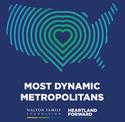China stands as the primary exhibit of twenty-first-century urbanism. At a time when elite cities in the West barely manage to grow in population, Chinese cities have emerged out of virtually nothing, as hundreds of millions of people have moved from farm to city. read more »
Economics
As United States Divide, the Green New Deal Could Be Democrats’ Undoing in 2020
If next year’s election is a referendum on Donald Trump, you can hand power to the Democrats now. But fortunately for the president, and the Republican Party, politics remains more about interests than personalities.
More than by cultural memes touching on race, gender, and even taste, the United States are divided by where we live and how we make our living. America, after all, is a vast country and its remarkable economic diversity is what makes it so dynamic and capable against all competitors. read more »
- Login to post comments
What Is Social Justice?
Perhaps no issue more motivates progressive activists than social justice. Good intentions may motivate the social justice warriors, albeit sometimes sprinkled with a dollop of self-hatred. But good intentions do not necessarily produce good results. Indeed, often the policies favored by progressive idealists hinder the economic and social progress of the very people they seek to rescue. read more »
- Login to post comments
The Populist Dilemma
The recent upsurge in support for populist conservatives, not only across Europe, but in the United Kingdom, Australia, Canada and even India has inspired talk of “a nationalist revival” and “the cosmic magnetism” of Donald Trump and Brexit. Here, it is argued, is a movement that finally can take on both the Green-oriented and increasingly authoritarian left. read more »
- Login to post comments
New Metropolitan Rankings Show Knowledge-Based Industries and Entrepreneurship Drive Success
Today, the Walton Family Foundation released “The Most Dynamic Metropolitans,” new research ranking the economic performance of metropolitan areas in the Heartland and across the country. The study demonstrates that a knowledge-based economy spurs economic growth in metropolises across the United States. Metro areas with knowledge-based economies ranked higher than cities that have yet to make much-needed investments in technology, education, entrepreneurship and commercialization. read more »
- Login to post comments
The Resistance We Need: The Trump Administration Gears Up to Trust-Bust the Tech Giants
If ever any group had it coming, it’s the giants of the tech industry. The recent decision by the Trump administration to look into monopolistic practices by the tech oligarchs—talk about collusion!—represents a welcome change from over two decades, under both parties, of sucking up to these firms as they bought up competitors and consolidated market positions that would put the likes of John D. Rockefeller to shame. read more »
- Login to post comments
Closing the Gap
China is building a magnetically levitated (maglev) train that will “fill the gap between high-speed rail and air transportation,” says CNN. This new train may have a top speed of 370 miles per hour, which “could narrow the gap between high-speed rail and air travel,” says Republic World. read more »
- Login to post comments
From Madera and Joplin to New York: Dispersed, Not Dense Urban Areas Dominate GDP
For some time, the mainstream press and conventional urban planners have been obsessed with a “dense urban” narrative. This is largely a myth, as has been demonstrated by resurgent growth in suburbs and exurbs. read more »
- Login to post comments
Wildlife Crime Threatens Species and Fuels Transnational Crime
If you’ve ever seen a herd of elephants moving majestically across an African savannah, you’ll always remember the experience. Equally memorable yet horrifying is the sight of a dead animal killed by a poacher for its tusks. read more »
- Login to post comments
Class, Empathy, and the Green New Deal
The recent debate over the Green New Deal got me thinking about a lecture I gave in 2018 at the Columbia University Seminar on Energy Ethics. The faculty who attended were mostly environmental lawyers and scientists. I am neither. But they asked me to discuss “The Fragility of the Blue-Green Alliance” – not so much the formal partnerships between union and environmental groups but rather the complex challenges of bridging differences between workers and environmentalists. read more »
- Login to post comments






















